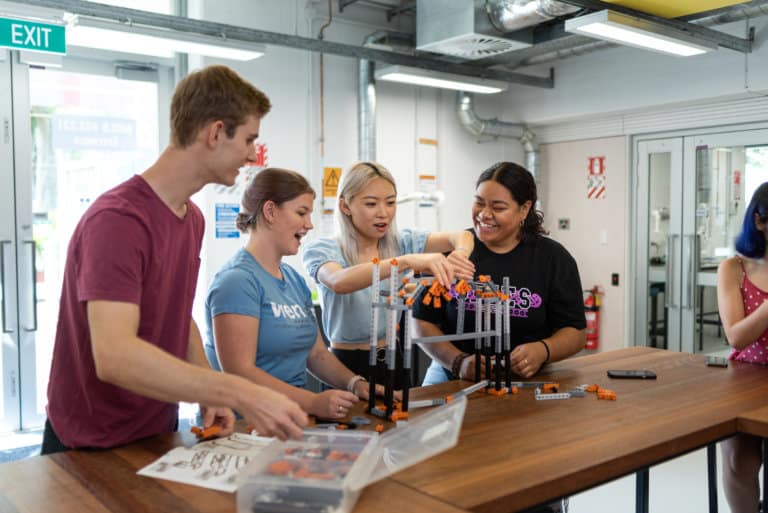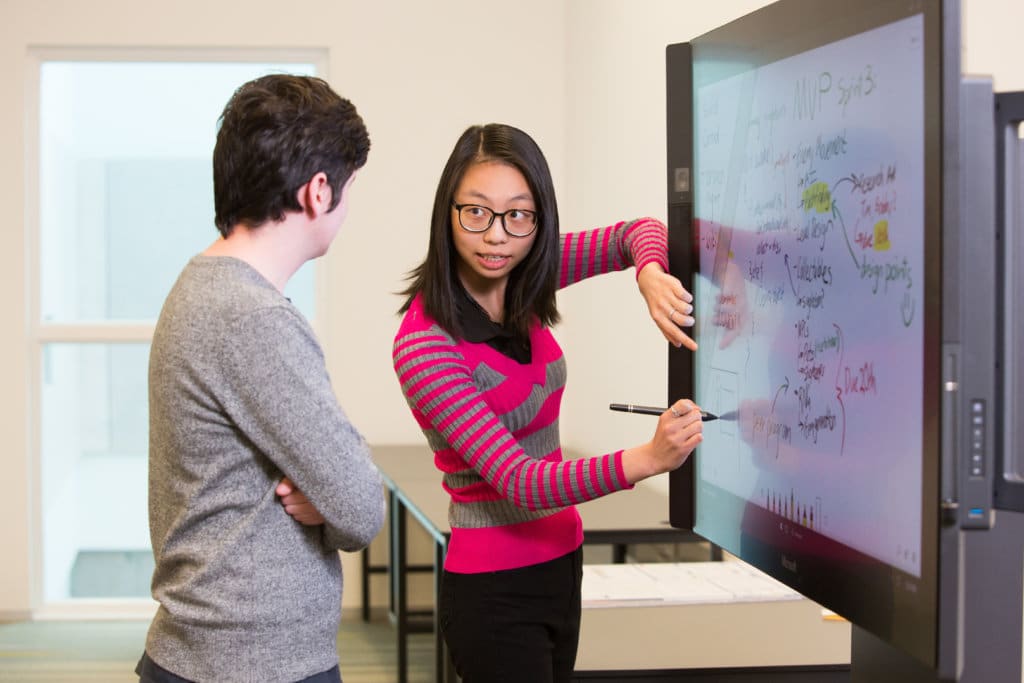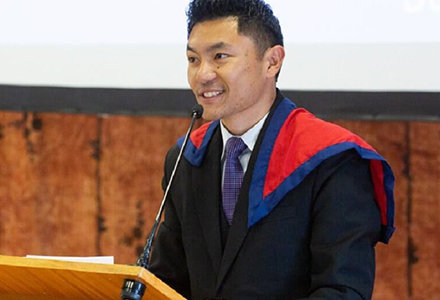
The climate crisis, global health as well as security challenges are just some of the reasons why the world is in imminent need of innovators. Universities must all take centre stage in producing the next generation’s engineering changemakers to tackle real-world issues; especially in relation to sustainability, advancements in healthcare, and the improvement of day-to-day living. Many of these challenges cross national borders; its solutions must have at least regional, if not global impact.
But what makes a student engineer an innovator? How do fresh graduates scale their knowledge and skills, and take their innovations beyond their home country? For starters, you might want to keep an eye out for universities that boast a world-class academic reputation, award-winning faculty members, and state-of-the-art facilities. These are the basic building blocks for a bright future as a professional.
If you’re ready to innovate change around the world as an engineer, here are four universities that fulfil all of the above and can take you to where you want to be:
University of Auckland

Source: The University Auckland
Since its inception in 1883, the University of Auckland has enjoyed a reputation as New Zealand’s largest university and pre-eminent research-led institution. Today, it is ranked sixth in Times Higher Education University Impact Rankings 2022, 87th in the world in QS World University Rankings 2023 (the only New Zealand university in the top 100) and 137th equal in the 2022 Times Higher Education World University Rankings (making it the top-ranked university in New Zealand).
The university is a pioneer through and through. Recently, the University of Auckland launched a globally recognised Washington Accord-accredited Master of Professional Engineering (Civil) — the first of its kind in the country.
The Washington Accord is the global standard for accredited engineering degrees that provide pathways for engineers to practise as Chartered Professional Engineers (or similar), and also support the global mobility of professional engineers. Accreditation from Engineering New Zealand will be upon graduation of its new intake in 2025.
This postgraduate programme will empower students to build the world from anywhere and get a headstart in their careers as a Chartered Engineer. Unlike a MCiviEng degree that focuses on the development of advanced technical and engineering knowledge and competencies, the MProfEng is a broader-based master’s degree addressing the requirements for the Washington Accord Graduate Attributes.
The MProfEng’s primary form is a 240-point two-year full-time master’s degree. Those with prior learning can opt for the 180-point option, while those from related areas with a non-accredited undergraduate degree (BSc Maths and Physics) can pursue the 240-point option. They can complete their first 30 points online before finishing the rest on campus.
The University of Queensland
 Ranked 50th in this year’s QS World University Rankings, the stellar education provided by the Faculty of Engineering, Architecture, and Information Technology at the University of Queensland has earned the institution a global reputation for excellence.
Ranked 50th in this year’s QS World University Rankings, the stellar education provided by the Faculty of Engineering, Architecture, and Information Technology at the University of Queensland has earned the institution a global reputation for excellence.
The Faculty has long and proud traditions of innovation and leadership across student education and research. The department seeks to be universally recognised as an outstanding provider of education in engineering, design and technology as it influences the world through creative thinking, innovative technologies and distinguished staff, students and alumni.
“In just over a century, more than 27,000 Faculty graduates have gone on to use their UQ education to have a significant impact on our state, our nation and across the world,” says Simon Biggs, the Faculty’s Executive Dean. “From novel hydrogen storage and next generation polymers to biomedical engineering and mining safety, our research outcomes are solving problems for local and international communities, and our industry partners.”
Engineering students at QUT study at one of the largest university faculties in Australia – one with a really strong focus on teaching, research and strategic partnerships within the Engineering industry. Through a range of undergraduate and postgraduate degrees across six diverse schools, students are guaranteed to find a course to meet the needs of their specific interests. The university believes in developing practical solutions that will impact the real world and that’s exactly what students will be trained in.
The University of Adelaide

Source: The University of Adelaide, Facebook
Ranked 124th in the world in the discipline, the University of Adelaide’s School of Electrical and Electronic Engineering and part of Australia’s prestigious Group of Eight, this university is the ideal setting for those looking for a world-class education in electronic engineering in APAC.
Choose from the Double Degrees (Bachelor of Engineering (Honours) with Bachelor of Finance, Science or Mathematical and Computer Sciences), a Combined Degree (Bachelor of Engineering (Honours)(Electrical and Electronic) and Bachelor of Arts) or the Bachelor of Engineering (Honours)(Electrical and Electronic).
For postgraduate studies, choose either Graduate Diplomas (Engineering (Electrical) or Engineering (Electronic) or Masters by Coursework (Engineering (Electrical) or Engineering (Electronic).
At the beautiful North Terrace campus, students can also choose from a range of exciting, industry-relevant majors and minors. Majors designed to enhance your knowledge and practical skills include Communication Systems, Defence Systems and Medical Technologies. Meanwhile, you can pursue minors in Entrepreneurship and Humanitarian.
Vaishali Ghosh, Bachelor of Engineering student, said: “The University of Adelaide has helped me bridge the gap between high school and work life and equipped me with skills that set me apart and make me a success in the workforce.”
The Hong Kong University of Science and Technology

Source: The Hong Kong University of Science and Technology
The Hong Kong University of Science and Technology (HKUST) Department of Electronic and Computer Engineering (ECE) is part of an international research university with strong ties to global thought leaders. All courses are conducted in English, the university’s medium of instruction.
Offering three types of Master of Science – Telecommunications, IC Design Engineering, Electronic Engineering – as well as MPhil and PhD in ECE, future industry leaders receive training and knowledge that benefit from a strong research culture. HKUST is ranked 16th in 2018 Global University Employability Ranking, 2nd in Hong Kong and 37th globally in the 2019 QS World University Rankings. In the 2019 Times Higher Education World University Rankings, it is ranked 23rd globally in Engineering & Technology.
When you study with the Department of ECE, you will have access to advanced research facilities and world-class teaching from a distinguished faculty with extensive experience and intellectual rigour. Its ideal location in Hong Kong means students and researchers benefit from a Western-style education, academic freedom and free access to information. At the same time, it benefits from strong links with industry, including those in Mainland China, the largest and most technologically-advanced economy in the world.
These comprehensive educational strategies highlight HKUST’s commitment in producing well-rounded graduates, with strong entrepreneurial spirits and innovative thinking – the necessary foundation and skills for the changing world.
*Some of the institutions featured in this article are commercial partners of Study International









